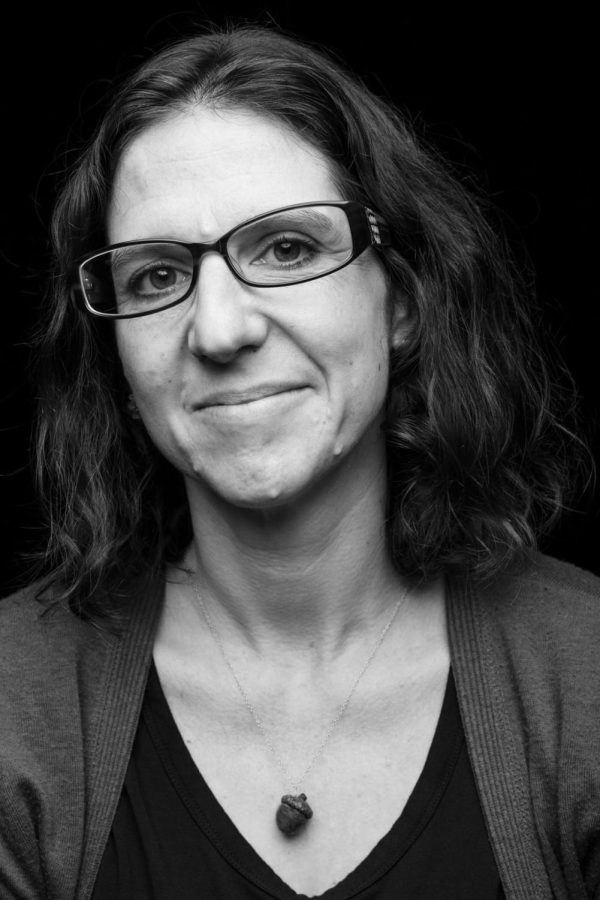The language of nature: Maya Jewell Zeller’s roots extend through her words
March 1, 2023
While some may imagine writers as a stereotypical, antisocial person who holes themself up in their home to work on their manuscripts, this hasn’t always been the case for published author and professor of creative writing, Maya Jewell Zeller, who said she is no stranger to nature.
Professor Zeller grew up in the northwest and said she spent a lot of her time outdoors, closely observing the world around her.
“I think what I do professionally and personally is pay very, very close attention to the world around me,” Zeller said. “In the very beginning of my life, I did not have access to traditional education and I lived with a family that was somewhat non-traditional, and I would say pseudo-transient.”
Growing up, she lived in many different places including trailers, barns, rentals and makeshift homes.
“I didn’t have access to a lot of capital pursuits, but I had access to the natural world,” Zeller said. “I tended to spend a lot of time in the fields by the rivers and in barns, and so I lived a life that was very rich in sensory observation.”
According to Zeller, the natural world was her “first library,” and eventually, through access to the public library, she discovered books that offered her the same connections through language.
“When I started reading poetry, I became excited by the possibilities of language,” Zeller said. “I found that language gave me the ability to express some of those sensory observations and feelings that made me feel alive.”
From a young age, Zeller knew she wanted to work with language, but she also wanted to work with other people who wanted to read and write. That passion led her to teaching.
Known as “Maya” by her students and friends, Professor Zeller strives to create a safe environment for students to share their writing. Some of Zeller’s students say they feel fortunate to be in her class.
One of Zeller’s students, Monica Monk, said, “Writing teachers or mentors like Maya only come around once or twice in a lifetime if we’re lucky … I’ve written more poems in the last six months than I have over my whole lifetime and have developed confidence in my writing, thanks to Maya’s innovative assignments and the rich learning environment in her classes.”
In addition to being an accomplished author and CWU professor, Zeller is a poet, an editor, a nature enthusiast and a mother. Students and colleagues who know her described her as “brilliant,” “thoughtful,” “unfailingly positive,” “encouraging,” and “an amazing teacher.”
According to Zeller, it is a challenge to balance her respective roles.
“First of all, you have to give yourself permission not to be perfect in every realm,” Zeller said. “You have to say to yourself, ‘I am a writer, I am a teacher, I am an editor, I am a community member and organizer and I am a mother, and I am doing all these things, but I am not going to do them all perfectly all the time.’”
Creating space for writing
As for finding time to write, Zeller said she gives herself a Friday each month when the kids are at school to put aside her work, sit down and read and write whatever she is interested in that day.
Zeller said when she is not busy reading and grading students’ work, she spends her time working on several projects, one of which is a collaboration with her friend and colleague, Dr. Kathryn Nuernberger.
“I met Maya when we were graduate students in poetry at the MFA program at Eastern Washington University,” Nuernberger said. “Our friendship was rooted in our shared admiration for each other’s writing … I think we made each other better writers.”
Nuernberger said their friendship has deepened over the years through shared struggles and grief, including finding work-life balance and pushing back against sexism.
“Our most significant collaboration has been co-authoring our forthcoming textbook Advanced Poetry Writing, which will be released by Bloomsbury next year,” Nuernberger said.
According to Zeller, the textbook is an advanced poetry writing textbook and will be the first one in its field. Zeller said she hopes it will be used by students in 400-level classes, graduate classes and by anyone who wants to further their poetry studies past the beginner and intermediate levels.
The textbook is not the only thing Zeller said she has in development. Some of the other projects Zeller is currently working on include a memoir, a new book of poems in dialogue with Emily Dickenson, and the publishing of her work “out takes/ glove box,” which recently won the 2022 New American Poetry Prize. “Out takes/ glove box” was selected for the prize by poet Eduardo Corral.
“It is about monstrosity, the female reproductive system, motherhood, middle-age, mental health, and a fragment, and the use of deep image as a way to communicate emotional strata,” Zeller said.
According to Zeller, CWU’s writing programs feature a lot of “brilliant minds” and a lot of diverse student perspectives, and she encouraged writers in the program to connect with each other.
“I would just stress to students that writing is about patience, paying close attention and finding fellow weirdos,” Zeller said. “Writing is a solitary act, yes, but I think sharing it and having conversations with other writing weirdos is so valuable. Some of my biggest growth has come through collaboration and being in community with other writers who make space for each other, who make space for risk-taking and growth, on and off the page, in life and in art.”


